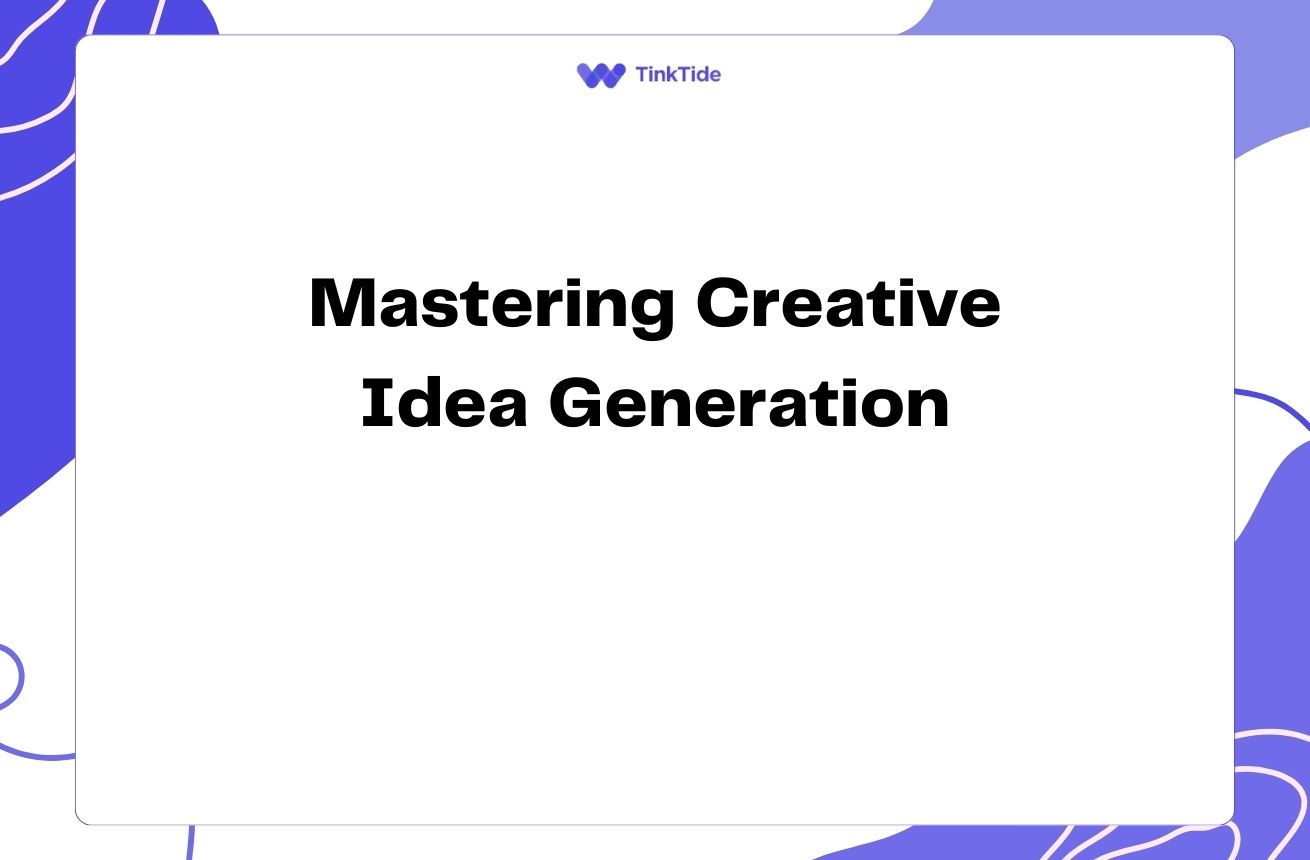Boost Your Creative Thinking: Habits and Routines That Work
The Power of Creative Habits
Creativity isn't just a gift; it's a skill you can cultivate. By establishing the right habits and routines, you can significantly boost your creative thinking abilities. These practices help train your brain to think more flexibly and generate innovative ideas more consistently.
Research shows that regular creative practices can enhance problem-solving skills, improve cognitive flexibility, and increase overall productivity. By incorporating these habits into your daily life, you're essentially giving your creative muscles a regular workout.
Remember, the key to success is consistency. Start small, be patient, and gradually build these habits into your routine. Over time, you'll notice a significant improvement in your creative output and problem-solving abilities.
Morning Pages: Start Your Day with Creativity
One powerful habit to kickstart your creative thinking is the practice of 'Morning Pages,' popularized by Julia Cameron in her book 'The Artist's Way'. This technique involves writing three pages of stream-of-consciousness thoughts every morning.
The beauty of Morning Pages lies in their simplicity and effectiveness. By putting pen to paper (or fingers to keyboard) first thing in the morning, you're clearing your mind of clutter and making space for creative thoughts to flourish.
Don't worry about grammar, spelling, or even coherence. The goal is to let your thoughts flow freely, which can lead to unexpected insights and ideas. This practice helps you tap into your subconscious mind and can often reveal solutions to problems you've been grappling with.
Mindfulness Meditation for Creative Clarity
Incorporating mindfulness meditation into your daily routine can significantly enhance your creative thinking skills. Even just 10 minutes a day can make a noticeable difference in your ability to focus and generate new ideas.
Mindfulness helps quiet the constant chatter in your mind, allowing space for creative thoughts to emerge. It also improves your ability to observe your thoughts without judgment, which is crucial for creative problem-solving.
Apps like Headspace or Calm offer guided meditations specifically designed to boost creativity. Start with short sessions and gradually increase the duration as you become more comfortable with the practice.
Remember, the goal isn't to clear your mind completely, but to observe your thoughts without getting caught up in them. This skill translates directly to creative thinking, allowing you to explore ideas more freely.
Regular Brainstorming Sessions
Set aside time each week for dedicated brainstorming sessions. These can be solo or with a group, depending on your preferences and the nature of your work. The key is to make them a regular part of your routine.
During these sessions, use techniques like mind mapping or the SCAMPER method to generate ideas. The goal is to produce a high quantity of ideas without judging their quality. This practice helps train your brain to make unexpected connections and think more creatively.
Remember to create a judgment-free zone during these sessions. No idea is too wild or impractical. Often, the most innovative solutions come from seemingly absurd ideas that are later refined.
Embrace the Power of Walking
Many great thinkers, from Charles Darwin to Steve Jobs, swore by the creative power of walking. Incorporating a daily walk into your routine can significantly boost your creative thinking skills.
A Stanford study found that walking increases creative output by an average of 60%. The physical act of walking, especially in nature, helps to clear your mind and stimulate creative thought.
Try to make your walks device-free. Allow your mind to wander and observe your surroundings. You might be surprised by the ideas that pop into your head when you're not actively trying to solve problems.
Cultivate Curiosity Through Learning
Establish a habit of continuous learning. This could involve reading books outside your field, taking online courses, or attending workshops. The goal is to expose yourself to new ideas and perspectives regularly.
Platforms like Coursera or Skillshare offer a wide range of courses on various subjects. Try to learn something new each month, even if it's not directly related to your work. This practice helps create new neural connections in your brain, enhancing your ability to think creatively.
Remember, creativity often comes from combining existing ideas in new ways. The more diverse your knowledge base, the more raw material you have for creative thinking.
Implement These Habits Step-by-Step
Incorporating all these habits at once can be overwhelming. Instead, try implementing them gradually:
- Week 1: Start with Morning Pages for 15 minutes each day
- Week 2: Add a 10-minute mindfulness meditation session
- Week 3: Introduce a weekly brainstorming session
- Week 4: Incorporate a 20-minute daily walk
- Week 5: Begin a new online course or pick up a book on an unfamiliar topic
Address Common Questions
Here are some frequently asked questions about establishing creative thinking habits:
How long does it take to see results from these habits?
While individual experiences may vary, many people report noticing improvements in their creative thinking within 2-4 weeks of consistently practicing these habits. However, the full benefits often become more apparent after several months of regular practice.
Can these habits help if I don't consider myself a creative person?
Absolutely! Creativity is a skill that can be developed, not an innate talent. These habits are designed to help anyone enhance their creative thinking abilities, regardless of their starting point.
How can I maintain these habits when I'm busy?
Start small and be flexible. Even five minutes of Morning Pages or a short walk can be beneficial. The key is consistency, not perfection. Try integrating these habits into your existing routine, like meditating during your commute or brainstorming while doing household chores.
What if I hit a creative block despite these habits?
Creative blocks are normal, even with good habits. When you hit a block, try changing your environment, taking a break, or using a different creative technique. Remember, the habits are tools to help you, not guaranteed solutions.
Can technology help in establishing these creative habits?
Yes, technology can be a great aid. Apps like Headspace for meditation, Evernote for Morning Pages, or MindMeister for mind mapping can help streamline your creative practices. However, be mindful of not letting technology become a distraction.
Additional Resources
The Artist's Way
Julia Cameron's seminal work on unlocking creativity
Mindfulness for Creativity
A guide to using mindfulness to enhance creativity
TED Talk: Your Elusive Creative Genius
Elizabeth Gilbert's perspective on creativity
The Creative Habit
Twyla Tharp's book on making creativity a habit
Creativity, Inc.
Ed Catmull's insights on fostering creativity in organizations
Embrace Your Creative Journey
Establishing habits and routines to boost your creative thinking is a journey, not a destination. Be patient with yourself and celebrate small victories along the way.
Remember, creativity is like a muscle - the more you use it, the stronger it becomes. By consistently practicing these habits, you're setting yourself up for a lifetime of enhanced creative thinking.
Start implementing these practices today, and watch as your creative abilities flourish. Your next big idea could be just around the corner!
Unlock Your Creative Potential
Ready to supercharge your creativity? Our platform offers tools and resources to help you establish and maintain these creative habits.
Start Your Free Trial
